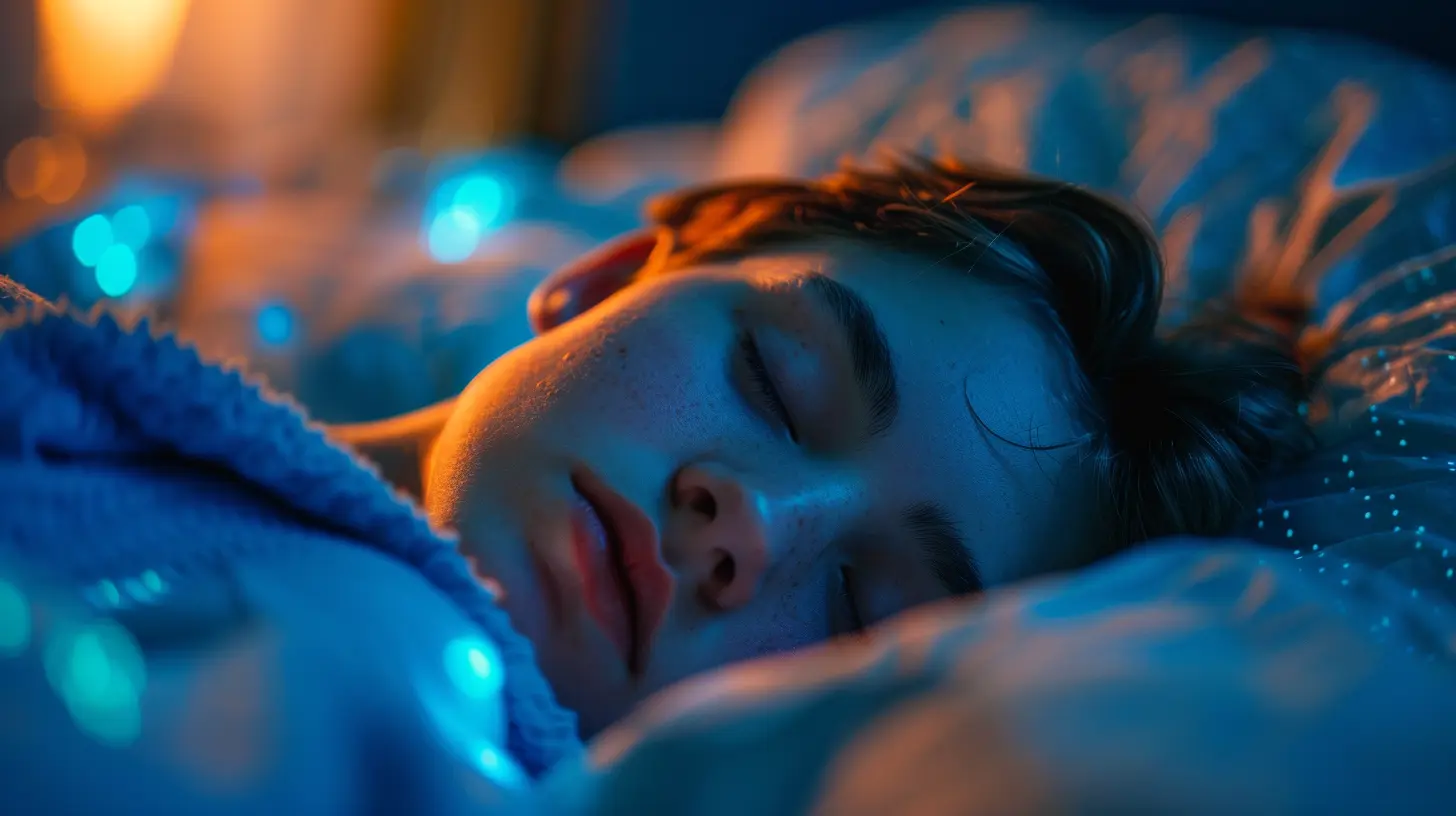The Role of Genetics in Sleep Disorders: Are Some People Predisposed?
3 July 2025
Sleep is one of the most essential aspects of our well-being. Yet, for some, restful sleep remains elusive. While lifestyle factors like stress, diet, and screen time play a role, there’s something deeper at play—our genes.
Could it be that some people are simply wired to struggle with sleep? Let’s dive into the fascinating world of genetics and its connection to sleep disorders. 
Is Poor Sleep In Your DNA?
Ever wonder why some people can fall asleep the moment their head hits the pillow while others toss and turn for hours? While habits and environment influence sleep patterns, researchers have found that genetics can also be a major contributor.Studies show that sleep disorders such as insomnia, restless legs syndrome, and sleep apnea often run in families. If your parents struggled with sleep, there’s a good chance you might too. But why is that?
The answer lies in our DNA. Genes control countless biological processes, including those that regulate sleep. Some people inherit gene variations that make them more prone to sleep disturbances. 
How Genetics Influence Sleep Patterns
Our sleep patterns aren’t just random—they are controlled by our biological clock, also known as the circadian rhythm. This internal clock dictates when we feel sleepy and when we feel alert.Scientists have discovered that certain genes—like PER2, CLOCK, and DEC2—play a role in regulating this rhythm. Mutations in these genes can lead to irregular sleep patterns. For example:
- Some people naturally require less sleep due to a rare mutation in the DEC2 gene. These individuals can function well on as little as four to six hours of sleep per night, whereas most of us need seven to nine hours.
- Genetic variations in the PER2 gene can lead to Delayed Sleep Phase Syndrome (DSPS), causing people to feel naturally inclined to sleep late and wake up late.
- Genes like CLOCK influence how we adjust to time changes—ever notice how some people struggle with jet lag more than others? Genetics may be at play.
In short, our DNA plays a big role in shaping when and how we sleep. 
Sleep Disorders With A Genetic Link
Now, let’s take a closer look at the most common sleep disorders that have a genetic component.1. Insomnia – The Sleepless Struggle
If you’ve spent countless nights staring at the ceiling, unable to drift off, you're not alone. Insomnia affects millions, and while stress and lifestyle habits contribute, genetics can make some individuals more vulnerable.Research has identified multiple genes linked to insomnia, including MEIS1 and BTBD9, which are also associated with restless legs syndrome. If insomnia runs in your family, your DNA could be at least partly responsible.
2. Restless Legs Syndrome (RLS) – The Urge to Move
Ever feel a deep, uncomfortable urge to move your legs at night? That could be Restless Legs Syndrome (RLS), a neurological disorder that interferes with sleep.Studies show that RLS is highly hereditary. If your parents or siblings have it, your risk is significantly higher. Variations in genes like BTBD9 have been linked to this condition, affecting dopamine levels and nerve function.
3. Sleep Apnea – When Breathing Stops
Sleep apnea is more than just snoring—it’s a serious condition where breathing repeatedly stops and starts during sleep. This can lead to daytime fatigue, increased health risks, and poor sleep quality.While obesity and lifestyle factors play a role, genetics also contribute. Studies indicate that upper airway structure, fat distribution, and even brain signals that regulate breathing can be influenced by inherited traits.
4. Narcolepsy – The Uncontrollable Sleep Attacks
Imagine suddenly falling asleep in the middle of a conversation—that’s what people with narcolepsy experience. This rare disorder is believed to be influenced by autoimmune responses and genetic factors, particularly variations in the HLA-DQB1 gene.If someone in your family has narcolepsy, your chances of developing it increase, though environmental factors also play a role. 
Can You Overcome Genetic Sleep Struggles?
If genetics play such a big role, does that mean you’re doomed to suffer from sleep disorders? Not at all! While you can’t change your genes, you can take steps to improve your sleep quality.1. Establish A Consistent Sleep Schedule
Since your circadian rhythm is partly genetic, sticking to a regular sleep routine helps reinforce a stronger sleep-wake cycle. Try to go to bed and wake up at the same time—even on weekends!2. Create A Sleep-Friendly Environment
- Keep your room cool, dark, and quiet.- Invest in a comfortable mattress and pillows.
- Limit blue light from screens before bed—your genes may already make sleep harder, so don’t sabotage yourself!
3. Watch What You Eat & Drink
Your evening habits matter:- Avoid caffeine in the afternoon—it can linger in your system for up to 8 hours!
- Skip heavy meals before bedtime.
- Consider magnesium-rich foods like almonds, bananas, and dark chocolate—they promote relaxation.
4. Get Moving, But At The Right Time
Exercise is great for sleep, but timing is key. Avoid intense workouts close to bedtime, as they can leave you too wired to wind down.5. Manage Stress & Anxiety
If your brain won’t shut off at night, relaxation techniques like meditation, deep breathing, or journaling can be game-changers.The Future: Can Genetics Help Us Improve Sleep?
As research into sleep genetics advances, scientists hope to develop personalized treatments based on a person’s DNA. Imagine a future where doctors could analyze your genes and tailor sleep treatments that work specifically for you!With the rise of genetic testing services, understanding your genetic risk for sleep disorders is becoming more accessible. While we’re not yet at the stage of fully customized sleep prescriptions, science is moving in that direction.
Final Thoughts: Are You Predisposed to Sleep Struggles?
Yes, genetics can play a significant role in how well or poorly you sleep. However, your DNA isn’t your destiny. By adopting healthy sleep habits and making mindful lifestyle choices, you can improve your chances of getting restful, rejuvenating sleep.So, if sleep woes run in your family, don’t feel discouraged. Instead, take a proactive approach—it’s all about working with your body, not against it. Sweet dreams!
all images in this post were generated using AI tools
Category:
Sleep DisordersAuthor:

Angelo McGillivray
Discussion
rate this article
2 comments
Maddison Newman
This article offers valuable insights into how genetics influence sleep disorders. It highlights the importance of understanding individual predispositions, which can guide targeted treatments. However, while genetics play a role, lifestyle and environment also significantly impact sleep quality and overall health.
November 29, 2025 at 3:29 PM

Angelo McGillivray
Thank you for your insightful comment! I completely agree that while genetics is a key factor in sleep disorders, lifestyle and environmental influences are crucial for a comprehensive understanding of sleep health.
Carly Wilkerson
This article provides valuable insights into the genetic factors influencing sleep disorders. Understanding these connections can help personalize treatment approaches and improve patient outcomes. Thank you for sharing!
July 15, 2025 at 4:08 AM

Angelo McGillivray
Thank you for your feedback! I'm glad you found the insights valuable for improving treatment approaches in sleep disorders.


